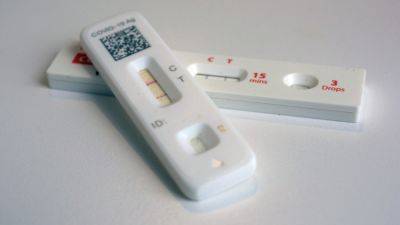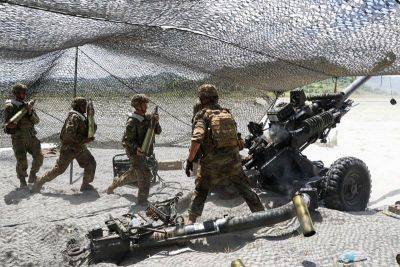As dengue fever cases ramp up worldwide, health officials tell U.S. doctors to stay alert
NEW YORK (AP) — U.S. health officials on Tuesday warned doctors to be alert for dengue cases as the tropical disease breaks international records.
The virus, which is spread by mosquitoes, has been surging worldwide, helped by climate change. In barely six months, countries in the Americas have already broken calendar-year records for dengue cases.
The World Health Organization declared an emergency in December, and declared a public health emergency in March.
Dengue remains less common in the continental United States, but in the 50 states so far this year there have been three times more cases than at the same point last year. Most were infections that travelers got abroad, but officials warn that local mosquitos are a growing dengue threat.
In its health alert Tuesday, the Centers for Disease Control and Prevention advised doctors to know the symptoms, ask questions about where patients recently traveled and consider ordering dengue tests when appropriate.
Dengue is caused by a virus spread by a type of warm weather mosquito that is expanding its geographic reach because of climate change, experts say.
Many infected people don’t get sick, but some experience headache, fever and flu-like symptoms. Severe cases can involve cause serious bleeding, shock and death.
Repeated infections can be especially dangerous.
There are four types of dengue virus, simply known as 1, 2, 3 and 4. When someone is first infected with dengue, their body builds antibodies against that type for life. If they get infected with another type of dengue, the antibodies from the first infection may fail to neutralize the second type — and actually can help the second virus type enter immune cells and replicate.
That’s a concern in Puerto Rico, which for the last two decades has been widely exposed to type 1. Last month, the island reported its first dengue death of the year.
“We’re currently seeing is increases in the cases due to dengue 2 and dengue 3, for which the population has very little immunity,” said Dr. Gabriela Paz-Bailey, the Puerto-Rico-based chief of the CDC’s dengue branch.
There is no widely available medicine for treating dengue infections.
Vaccines have been tricky, because it’s been







